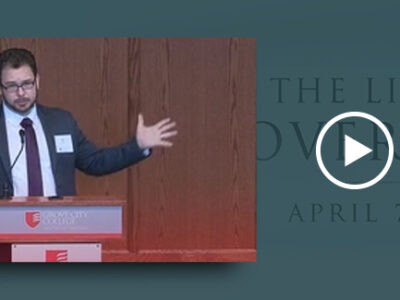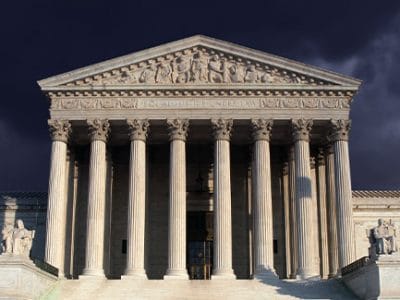Over the last week, something enormously important has happened — something deserving of much more than the routine news-cycle coverage. To put it bluntly, the presidential election in Afghanistan is a seminal event, and those who don’t understand how or why are sleepwalking through history.
Next to September 11 — which began the sequence of events that made this election possible — the vote in Afghanistan is the most far-reaching occurrence of the young 21st century, holding profound implications for future generations. Mercifully, the one person who understands the ramifications as well as if not better than anyone is the so-called dummy in the White House.
A DEMOCRATIC PEACE
Here’s the big picture: The great story of the past three centuries is the spread of democracy. The spirit of 1776, the launching of the American experiment, was the pinnacle event of the 18th century, eventually offering a beacon that continues to inspire and change the world to this day. The most important development of the 19th century was the preservation of that extraordinary democratic republic through the Civil War period, as the nation persevered to play a more significant role than any other in the “American century” ahead. The decisive change of the 20th century was the spread of liberty to Western Europe after WWI, to Germany and Japan after WWII, and to Eastern Europe, Latin America, and Asia after the Cold War.
The one area of the world painfully immune to this contagion of freedom is the Middle East: the least democratic region on the planet. A survey by Freedom House at the end of the 20th century found that while 63 percent of nations are technically democracies, an astonishing zero of the 16 Arab countries in the Middle East were democratic. George W. Bush’s vision is to change that condition not just for the betterment of the Middle East but to the benefit of the world, and he hopes that the transformation has just begun in Afghanistan.
In the academic field of international relations, one of the few useful debates is the “democratic peace” argument. It postulates a crucial reality: Democracies tend not to fight one another. Consequently, to the extent that the hostile Middle East becomes more democratic, it may become more peaceful. George W. Bush subscribes to this hope.
The president’s most far-reaching address was his November 6, 2003, speech to the National Endowment for Democracy, which ought to be required reading for every poli-sci class. The president that day reminded the crowd that in the early 1970s there were only 40 democracies. As the 20th century ended, there were 120. “[A]nd I can assure you,” he said to applause, “more are on the way.” Bush said the world had just witnessed, in just over a generation, the quickest advance of freedom in democracy’s history. Historians will search for explanations for this shift; yet, said Bush, we already know some of the reasons they will cite. Among them, he said, tellingly, “It is no accident that the rise of so many democracies took place in a time when the world’s most influential nation [America] was itself a democracy.” After World War II, reported Bush, the United States made military and moral commitments in Europe and Asia that protected free nations from aggression and created conditions for new democracies to flourish. Now, in the Middle East, under his administration, America seeks to do so again.
“THE CALLING OF OUR TIME”
That progression of liberty, said the president, is “a powerful trend” that, if not defended, could be lost. “The success of freedom,” said Bush, “rests upon the choices and the courage of free peoples, and upon their willingness to sacrifice.” Because the United States and its allies were steadfast, Germany and Japan became democratic nations that no longer threatened the world. Bush then explicitly affirmed his belief in democratic peace: “Every nation has learned, or should have learned, an important lesson: Freedom is worth fighting for, dying for, and standing for — and the advance of freedom leads to peace.” “And now,” he continued, thinking of the Middle East, “we must apply that lesson in our own time. We’ve reached another great turning point — and the resolve we show will shape the next stage of the world democratic movement.” He continued:
In many nations of the Middle East — countries of great strategic importance — democracy has not yet taken root. And the questions arise: Are the peoples of the Middle East somehow beyond the reach of liberty? Are millions of men and women and children condemned by history or culture to live in despotism? … I, for one, do not believe it. I believe every person has the ability and the right to be free.
Some skeptics of democracy assert that the traditions of Islam are inhospitable to representative government. This “cultural condescension,” as Ronald Reagan termed it, has a long history. After the Japanese surrender in 1945, a so-called Japan expert asserted that democracy in that former empire would “never work.” Another observer declared the prospects for democracy in post-Hitler Germany are, and I quote, “most uncertain at best.” … Seventy-four years ago, The Sunday London Times declared nine-tenths of the population of India to be “illiterates not caring a fig for politics.” … Time after time, observers have questioned whether this country, or that people, or this group, are “ready” for democracy — as if freedom were a prize you win for meeting our own Western standards of progress.
Seeing the Islamic nations of the Middle East as no exception, Bush contended that “in every region of the world, the advance of freedom leads to peace.” The “freedom deficit” in the Middle East had to be changed.
Bush conceded that while democracy is not perfect and not the path to utopia, it is “the only path to national success and dignity.” Importantly, he added that democratic governments in the Middle East “will not, and should not, look like us.” They should reflect their own cultures; they could be constitutional monarchies, federal republics, or parliamentary systems. Equally significant, Bush urged that “working democracies always need time to develop — as did American democracy.” America must be “patient” with those nations at different stages of the journey.
In the most controversial part of the address, Bush claimed: “It should be clear to all that Islam…is consistent with democratic rule.” Actually, it is not clear at all. Nonetheless, for doubters, he singled out examples of democratic progress in predominantly Muslim countries: Turkey, Indonesia, Senegal, Albania, Niger, and Sierra Leone. He said that Muslim men and women were good citizens of India and South Africa, the nations of Western Europe, and the United States. According to Bush, over half of all Muslims live under “democratically constituted governments,” and they succeed in democratic societies, “not in spite of their faith, but because of it.” He identified signs of democratic progress in Morocco, Bahrain, Oman, Qatar, Yemen, Kuwait, and Jordan.
If such countries become 21st-century democracies, historians will struggle to explain how impossible democracy’s prospects once seemed in these nations, and thus how boundless and rare was Bush’s optimism. His assessment may have been more farfetched than Ronald Reagan’s predictions on the end of Communism in the early 1980s, which Bush referred to in this speech. Speaking specifically of Reagan’s June 1982 Westminister Address, as well as Woodrow Wilson’s Fourteen Points and Franklin Delano Roosevelt’s Four Freedoms, Bush concluded: “The advance of freedom is the calling of our time; it is the calling of our country…. We [Americans] believe that liberty is the design of nature; we believe that liberty is the direction of history…. [T]his is, above all, the age of liberty.”
He finished by stamping his blessing on the work of all cheerleaders for liberty at the National Endowment for Democracy: “May God bless your work.” That parting reference to God should not be dismissed as a throwaway line: Indeed, George W. Bush believes that God has implanted the desire for freedom deep within the hearts of all human beings, regardless of religion or ethnicity, Muslim Arabs included.
THE TOAST OF HISTORY
The speech’s revolutionary sentiments were not new for Bush, and were also not post-Iraq War window-dressing. Since the first days after September 11, he had argued that what the terrorists hated most was freedom. A week after September 11, he promised: “We’re going to lead the world to fight for freedom.” He told Bob Woodward: “I truly believe that out of this [September 11] will come more order in the world — real progress to peace in the Middle East.”
George W. Bush assigned himself the role of catalyst. A year after September 11, and over a year before the National Endowment for Democracy speech and the invasion of Iraq, his administration released its sweeping National Security Strategy, which promoted the spread of democracy to nations held hostage to despots. This objective, Bush wished, could bring long-term peace to regions like the Middle East. In a parallel not lost upon Bush, historian John Lewis Gaddis noted that by seeking to spread democracy everywhere, Bush aimed to finish the job Woodrow Wilson started a century earlier. “The world,” writes Gaddis, “quite literally, must be made safe for democracy, even those parts of it, like the Middle East, that have so far resisted that tendency.” (This was the kind of thing that liberals once championed, before blind rage at Bush precluded their better angels.) In July 2001, in his Proclamation 7455 marking Captive Nations Week, Bush had declared: “The 21st century must become the ‘Century of Democracy.’”
Against incredible odds, George W. Bush may have laid the ground for Middle East democracy in the two most unlikely places, the Taliban’s Afghanistan and Saddam’s Iraq. Nowhere were women more repressed than in Afghanistan under the Taliban. Nowhere were humans generally more repressed than in Iraq under Saddam. Between the two, Saddam was the biggest destabilizer in the world’s most unstable neighborhood.
How will George W. Bush have achieved this? In both cases, by force — military force issued in reaction to September 11. September 11 handed him the opportunity. We can be certain that on that awful morning, as Osama ghoulishly smiled from a cave in Afghanistan, a rout of radical Islamic terror, defeat of dictatorship in Afghanistan and Iraq, and a potential wave of democratic freedom in the Middle East was not what Mr. bin Laden had in mind. But neither did he have in mind the response of George W. Bush.
To the extent that the Middle East becomes democratic, and peaceful — a very big “if” that remains to be seen — President Bush will have sowed the seeds in Afghanistan and Iraq. One man will have changed the course of history, making the 21st century rosy instead of bleak. And if such a monumental transformation happens, George W. Bush will be the toast of history, quite a change from today, where he is the focus of dripping hatred from millions in America and around the world. If only the haters could briefly put aside their passions and pause to see the remarkable stage of history possibly unfolding before their eyes. And if only our media could put aside partisanship and superficiality to ponder and relay the big picture.




